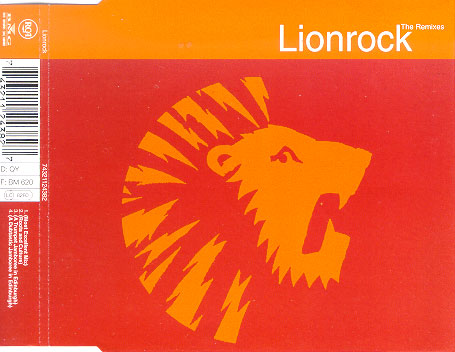
BIOGRAPHY
Lionrock was a British big beat group, comprising record producer Justin Robertson,[1] MC Buzz B, and producer, engineer, programmer and synthesist Roger Lyons. Lyons replaced recording engineer Mark Stagg in 1995. Their biggest chart success came in 1998, when "Rude Boy Rock" reached the Top 20 in the UK Singles Chart.
HISTORY
The group formed in 1991, and signed to Deconstruction Records in 1993.
Their song "Rude Boy Rock" was featured in the video game FIFA '99, as well as on the soundtrack to the 1999 film, Idle Hands. This song samples Nimrod by Jamaican reggae band Skatalites - 1965, later sampled by Damian Marley on the tune "All Night" from the album "Welcome To Jamrock" from 2005.
Producer Justin Robertson began recording as Lionrock in 1991 after plotting a successful career as a DJ and remixer. Aloof in the limelight and popular almost despite himself, Robertson took an almost laughably conventional route to a level of success reached by less then one-percent of dance music producers. A native of Manchester, Robertson earned a degree in philosophy before taking a job as (what else) a record store clerk in the Eastern Bloc record shop, where he began collecting the funkier side of progressive house and DJing on a regular basis. After remixing a track for Mad Jack on in-house label Creed (his mix of "Feel the Hit" became something of a underground smash), Robertson was subsequently flagged down by the likes of the Shamen, Candyflip, the Sugarcubes, and Erasure to lend his evolving signature to their material. As his style matured, he became associated with the burgeoning Balaeric scene (a hodge-podge subcategory of house encompassing a range of influences, from rock and R&B to disco and garage). Robertson released his solo debut, "Roots and Culture"/"Lionrock," on his own Most Excellent label in 1992. After peaking a few brows and spawning another round of remix work, Robertson was courted by pop/dance label Deconstruction, with whom he signed in 1993.
An Instinct for Detection He released an additional EP, Packet of Peace, on Deconstruction in April of 1993 before settling in to record his full-length debut. Released late the following year, An Instinct for Detection was an ambitious effort, to say the least, featuring scads of instrumentation resolutely nontraditional by U.K. dance music standards, mixed and matched with dirty house breaks and aggressive but accessible arrangements. Although the record was met warmly, its subtle abuse of pop (in the Beach Boys, not the Mariah Carey sense) was lost on many, and it remains something of a cult favorite. Robertson embarked on an elaborate tour following the album's release, and the presence of guitars, percussion, and drum kit on the stage of a Lionrock show became standard from the word go. In 1996, the popular mix-CD series Journeys by DJ contracted a mixed set from Robertson, resulting in a massive two-disc set spanning the range not only of Lionrock's influences, but of the last two decades of electronic dance music as a whole. Robertson continued to be a popular remixer, and Lionrock releases - including 1998's City Delirious -- appeared on a sporadic basis until he ditched the designation for his first production album under his own name, 2001's Revtone.
DISCOGRAPHY
Albums:
An Instinct for Detection (1996)
City Delirious (1998)
Singles, EP's:
"Lionrock" (1992)
"Packet of Peace" (1993)
"Carnival" (1993)
"Tripwire" (1994)
"Straight At Yer Head" (1996)
"Fire Up the Shoeshaw" (1996)
"Project Now" (1996)
"She's on the Train" (1997)
"Wet Roads Glisten" (1997)
"Rude Boy Rock" (1998)
"Scatter and Swing" (1998)
MORE INFO https://www.discogs.com/artist/3168-Lionrock
